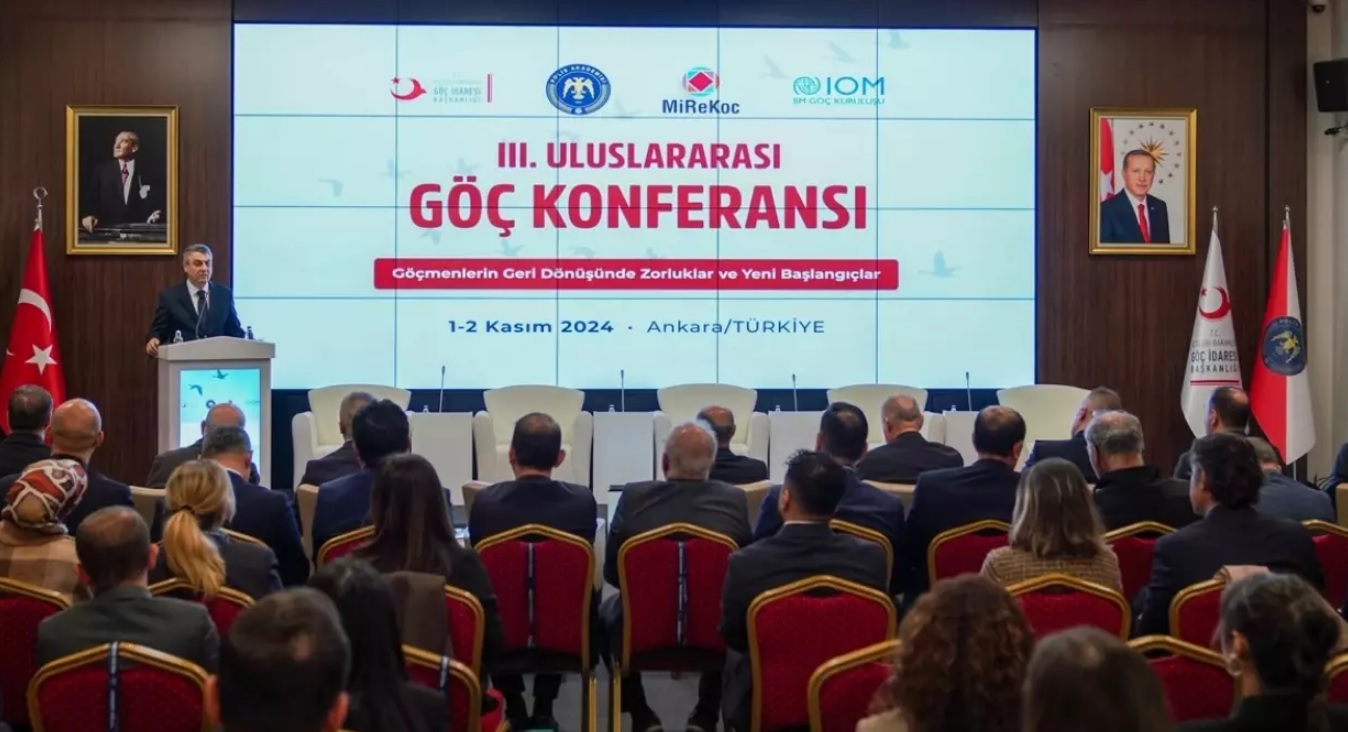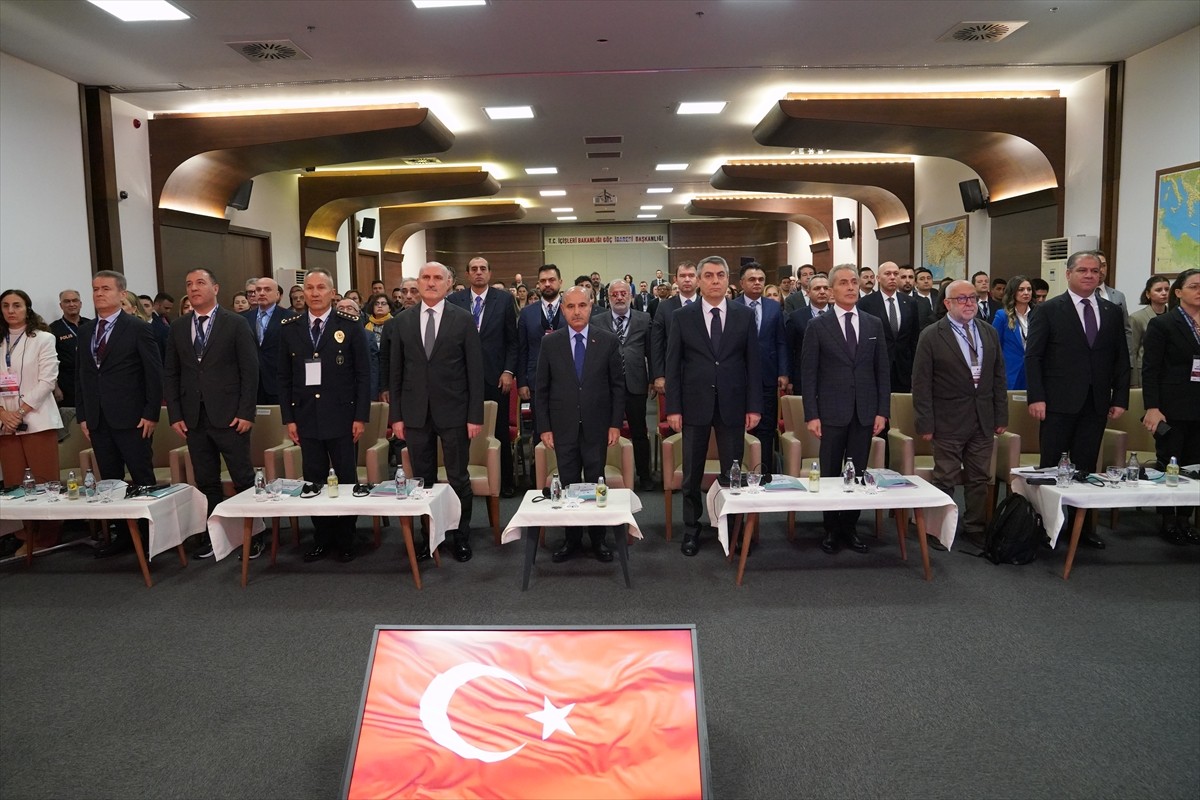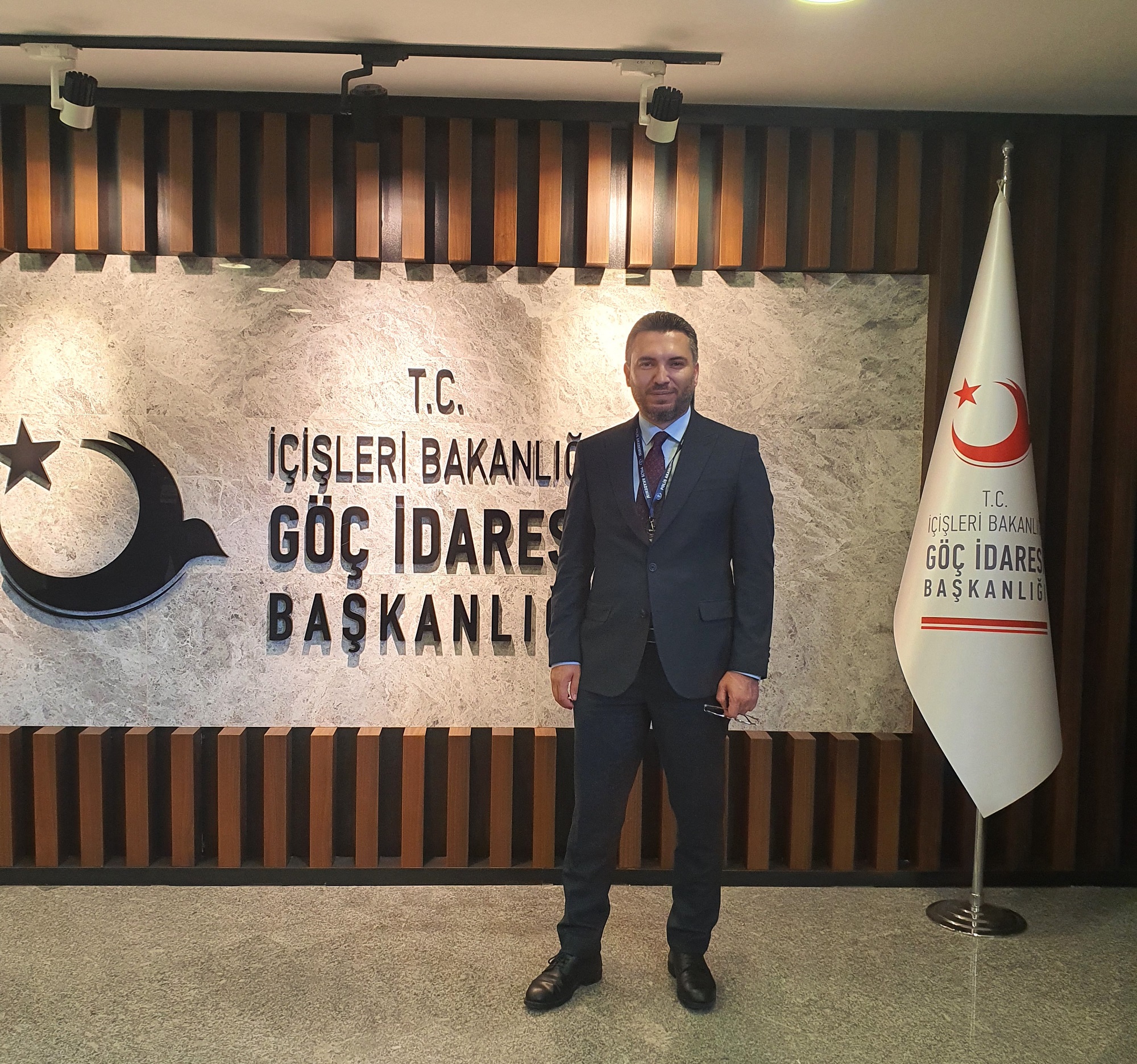
The “III. International Migration Conference”, which addresses migration and refugee issues from a global perspective, was held in Ankara with the theme of “Difficulties and New Beginnings in the Return of Migrants”. Assoc. Prof. Dr. Erdi Şafak, Faculty Member of the Near East University Faculty of Law, represented Near East University and TRNC at the lll. International Migration Conference organized by the Republic of Turkey Ministry of Interior Migration Administration Presidency, Police Academy Presidency and Koç University Migration Research Application and Research Center.
The opening speeches were made by the Deputy Minister of Interior of the Republic of Turkey Mehmet Aktaş, the Head of Migration Administration Atilla Toros and the Head of the Police Academy Prof. Dr. Yılmaz Çolak, and representatives from ministries, embassies and public institutions also attended the conference.

The lll. International Migration Conference, which attracted intense participation, created an important platform where solutions such as voluntary return of migrants, integration processes and resettlement were discussed. The conference, where many academics and legal experts in their fields came together, emphasized the legal and theoretical aspects of the concept of voluntary return.
At the conference, Assoc. Prof. Dr. Erdi Şafak, Faculty Member of the Faculty of Law representing the Near East University and the TRNC, addressed the solutions to refugee crises with his presentation titled “Understanding Voluntary Return in the Context of International Law: Concepts and Contents”. Assoc. Prof. Dr. Erdi Şafak emphasized that voluntary return is seen as the most satisfactory solution to refugee crises.

Assoc. Prof. Dr. Erdi Şafak: “Voluntary return is deeply related to the longings and memories of refugees, but it has various difficulties from a legal perspective.”
Assoc. Prof. Dr. Erdi Şafak stated that efforts to solve refugee crises are based on three basic elements; “These elements can be specified as voluntary return to the country of origin, integration into the country of asylum or resettlement in a third country.” Assoc. Prof. Dr. Şafak said, “Today, voluntary repatriation is considered the most satisfactory solution in terms of resolving refugee crises.” Assoc. Prof. Dr. Şafak stated that the United Nations has adopted voluntary repatriation as the ‘most desirable and permanent solution to refugee problems’ since 1983, and that this preference has led to a decrease in political support for integration and resettlement solutions.
Also drawing attention to the various legal difficulties of the concept of voluntary repatriation, Assoc. Prof. Dr. Şafak said, “Voluntary repatriation finds different equivalents in the branches of International Humanitarian Law, Refugee Law and Human Rights Law in international law. This situation causes the legal content of the concept to be complex and uncertain.” In this context, Assoc. Prof. Dr. Şafak stated that voluntary repatriation has expanded the boundaries of contemporary refugee law, such as the Geneva Convention, but still remains an insufficiently researched subject.